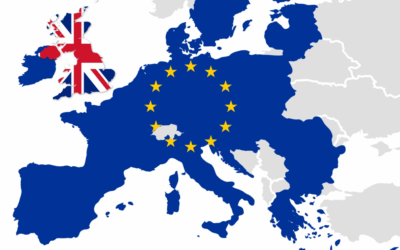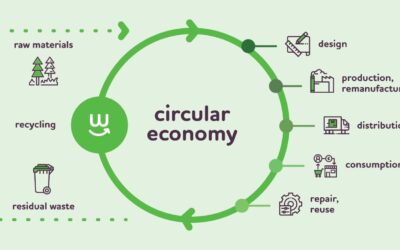As of 1 January 2023, a number of changes to Dutch employment law have been implemented, including an increase in the minimum wage by 10.15%, bringing it to EUR 1,934.40 gross per month for employees aged 21 and over. The maximum transition payment has also been increased and capped at EUR 89,000 gross or one year’s salary, whichever amount is higher.
The maximum tax-free travel allowance has increased from EUR 0.19 to EUR 0.21 per kilometre driven and is expected to increase further to EUR 0.22 in 2024. The tax-free working from home allowance has increased by EUR 0.15, from EUR 2.00 to EUR 2.15 per day. The age at which employees first receive government pension benefits was raised by three months to 66 years and 10 months.
The EU Whistleblower Directive has been implemented, which amends the current House for Whistleblowers Act and eliminates the obligation for an individual to first report internally. The Work Where You Want Act has also been passed, which makes it more difficult for employers to reject requests to adjust an employee’s place of work, and will enter into force in 2023 if passed by the Senate.
The Dutch government has introduced new tax rules as part of an effort to increase citizens’ purchasing power. For workers who earn up to 73,071 euros per year, the income tax rate will be lowered by 0.11 percentage points to 36.93%, saving them up to 102 euros in 2023. Additionally, the labour tax credit for those working in the Netherlands will be increased, potentially saving workers up to 500 euros annually. The tax-free travel allowance will also be raised from 19 cents to 21 cents per kilometre However, it should be noted that the Dutch government has also agreed to raise the wealth and corporate tax rate, as well as the mining levy on energy companies, starting in January 2023. Wealth tax rates will increase from 31% to 32%, and the lowest corporate tax bracket will decrease from 395,000 euros to 200,000 euros. The lowest corporate tax rate will also rise from 15% to 19%.
In addition to the changes mentioned earlier, the Dutch tax system will also see some other modifications including an increase in excise duties on tobacco products, such as cigarettes, by 1.22 euros starting April 2023. Taxes on sugary drinks will also go up by 20.20 euros per 100 litres. The government has also decided to raise the tax on airline tickets, from 7.95 euros to 26.43 euros per ticket. The reductions in fuel excise duties that are currently in place will continue until the end of June.
Government also announced that the transfer tax rate would increase from 8 percent to 10.4 percent, but the exemption rule introduced in 2021 for 18 to 35-year-olds will remain in place, as will the reduced rate of 2 percent for those over 35 who plan to live in their newly purchased property. This 10.4 percent rate will apply to landlords and property developers, as well as non-residential properties.
Low-income households will once again be eligible for a 1,300-euro energy allowance to help cover the cost of utilities, and from January 1, households in the Netherlands will pay a maximum of 1.45 euros per cubic meter of gas and 0.40 euros per kilowatt-hour of electricity. The price cap will only apply to the first 1,200 cubic meters of gas and 2,900-kilowatt hours of electricity used throughout the year. The consumption of any additional gas or electricity will be charged at the rates set by each individual energy company.
It was also announced that anyone who wants to make their home more sustainable will no longer have to pay VAT when purchasing solar panels. In 2023, 15,000 so-called “fled homes” (temporary new-builds or short-lease properties which are rented out for a fixed period of time) will be built in the Netherlands. However, the VAT cap on energy will expire on December 31, meaning that in 2023 the VAT will be set at 21 percent.
The STAP program (STimulering Arbeidsmarkt Positie), which was introduced in March 2022 and has been successful so far, will undergo changes in the upcoming year. The next round of applications has been delayed; instead of opening on January 1, applications will be available starting February 28, 2023. This is to give the government time to implement new measures to improve the program and ensure the quality of the courses offered under STAP, including stricter rules for course providers and ensuring trainers meet standards. Students in higher education in the Netherlands for the 2023-2024 academic year, who no longer live with their parents, will be eligible to receive an additional 165 euros per month to help cover the increasing cost of living. However, students will also see an increase in the interest rates on their student loans starting January 1, to 0.46 percent for those enrolled in a university, and 1.78 percent for those enrolled in a vocational course.
An increase in child benefits was also announced. The quarterly rates per child in euros as of January 2023 are:
- age 0-5 years: 269.76
- age 6-11 years: 327.56; and
- age 12-17 years: 385.47 euros per quarter.
The childcare benefit will also increase to help cover the growing cost of childcare. Young people will be able to live at home for a longer period of time without it affecting their parents’ benefits and allowances. Under current rules, once a child turns 21, their income affects the amount of benefits received by their parent(s), but starting January this will be increased to age 27, meaning parents will not see their benefits reduced if their adult children continue to live at home while working and earning their own salary.
The national minimum wage in the Netherlands will be increased as of January 1, 2023, and the new rates (in gross) are: age 21+ 1,934.40 euro per month, age 20 1,547.50 euro per month, age 18 967.20 euro per month, and age 16 667.35 per month.
The increase in minimum wage will also have a ripple effect on other Dutch benefits and allowances. For example, the state pension rate for couples who are married or living together will increase to 968.86 euros per month, and for single people, it will increase to 1,425.80 euros per month. The unemployment benefit rate will also increase by 10.15 percent. The state pension age in 2023 is 66 years and 10 months, which is slightly higher than the 66 years and 7 months in 2022.
As of January 1, 2023, it will be mandatory for all drivers and passengers on mopeds (snorfietsen) to wear helmets. Anyone who fails to comply with this rule will face a fine of 100 euros. The “NEE-NEE” and “NEE-JA” letterbox stickers will be replaced by a new digital system called InMijnBus. Instead of picking up a free sticker at your municipality, residents in the Netherlands will register their preferences through InMijnBus.nl. The 15-cent deposit on cans, which was first announced two years ago, will finally come into effect on December 31, 2022, as previously scheduled.
Starting January 1, a ban on misleading prices and discount information will also come into effect. Retailers will no longer be able to raise their prices only to lower them a few weeks later, misleading consumers by making them believe the new price is a “good deal.” The new rules state that the original price must be the lowest price quoted by the retailer in the last 30 days prior to the start of the sale. Netflix will launch new rules regarding account-sharing worldwide. Under the new rules, customers who share their accounts with someone who lives at a different address will have to pay an additional monthly charge.
Several changes to the Dutch healthcare system and health insurance. Healthcare premiums will increase from January, and the proportion of people eligible to receive the healthcare allowance will also increase as a result of changes to the income thresholds. The amount of money they will receive will also increase. Starting April 1, 2023, pregnant women will be able to book a Non-Invasive Prenatal Test (NIPT) for free. The NIPT is a blood test that can detect chromosomal abnormalities, such as Down syndrome. Currently, the test costs 175 euros. The rules for blood and plasma donation for gay and bisexual men will be relaxed. Currently, gay and bisexual men are only permitted to donate blood if they are in a monogamous relationship for more than a year, or if their last sexual encounter was more than four months ago. In 2023, a questionnaire will be used to determine whether or not a man who is sexually active with other men can safely donate blood, depending on their sexual history and whether or not they practice safe sex. It will be determined on a case-by-case basis, instead of one rule for all.
Starting in 2023, workers who have been diagnosed with lung cancer, allergic asthma, or chronic painter’s disease as a result of being exposed to harmful substances in their jobs will be able to apply for compensation from the government. This is a new initiative that will be available for eligible employees.
The European Union’s ETIAS visa waiver system will come into effect, requiring all visa-exempt travellers to register online with ETIAS in order to enter Schengen countries, such as the Netherlands, for a maximum stay of 90 days per entry. The authorization will be valid for three years and will pre-screen travellers for potential security or health risks before they reach European borders. This applies to all nationalities who currently do not need a visa to enter Europe, such as those from the USA, Canada, UK, and Australia. However, those coming to the Netherlands for longer than 90 days for reasons such as work or study will still need to apply for the appropriate visa or permit.
In summary, as of 1 April to 1 July 2023, there will be several new laws and regulations in Netherlands. As of 31 December 2022, there is a deposit on beverage cans, where supermarkets are required to take in empty cans, and other businesses, associations, and foundations can apply voluntarily to act as collecting points. As of 1 April 2023, certification for working with gas appliances will be mandatory, where installation work on gas burning appliances such as heating boilers, gas stoves, and hot water tanks will require a CO certificate. As of 1 July 2023, the processing time for building projects with the Environmental and Planning Act will be shorter, the new act will make it easier to check if a building project meets all the requirements in one go, this should lead to faster and cheaper decision-making and an end to unnecessary rules.
Construction companies will be required to hire the services of an independent and certified quality controller. The liability for hidden defects will change, where the construction company will be liable for defects only discovered by the customer after the moment of completion, unless the construction company or builder did not cause the defects. All construction and demolition works will be required to appoint a Safety Coordinator Immediate Surroundings to oversee the safety and health of everyone in the immediate surroundings of the work. These measures are expected to come into effect on 1 July 2023, but the effective date is not yet final.
As of 1 January 2023, there will be new laws and regulations in Netherlands regarding the installation and selling of solar panels and moped helmets. The VAT rate for installing and selling solar panels will be 0% instead of 21%. Periodical technical tests for diesel cars and vans will have to include a diesel particulate filter test using a special particle counter.
As of 1 January 2023, there will be changes to the customary salary scheme in Netherlands for directors/major shareholders of their own B.V. They will be required to pay themselves a salary that meets the highest of the following three amounts: a fixed sum of 48,000 euros, the wages of the highest-earning regular employee in the company, or 100% of the wages paid for the most similar type of employment. Additionally, there will be an increase in corporate income tax with a lowering of the first tax bracket from 395,000 to 200,000 euros, and an increase in the taxation rate for corporate income tax in bracket 1 from 15% to 19%. This means that profits of up to 200,000 euros will be taxed at a higher rate, and profits over 200,000 euros will be taxed at 25.8%. The effective date of this amendment is not yet final.
As of 1 January 2023, starting businesses in Netherlands will have to deal with several new laws and regulations. The private business ownership allowance (zelfstandgenaftrek) will be reduced by 1280 euros in 2023, and will be gradually reduced further in future years. The childcare benefit will no longer depend on the number of hours worked. Businesses will be able to shield their visiting address in the Business Register in case of a threat to themselves or others residing there. Misleading prices will not be allowed and discounts can only be offered when the original price from which the discount is deducted is the lowest price that the seller offered 30 days prior to the discount offer. There are three exceptions to this rule which include progressive lowering of the price, products that have been on the market for less than 30 days and perishable items. The effective date of this amendment is not yet final.
As of January 1st, 2023, the childcare benefit in Netherlands will no longer be dependent on the number of hours worked. Previously, the benefit was partly dependent on the number of hours worked by the parent working the least. This change is expected to make it easier for parents with young children who work irregular hours to continue working. The government hopes that this simplification will encourage more parents to continue working.
Sources:
https://www.burenlegal.com/en/news/changes-dutch-employment-law-effective-1-january-2023
https://dutchreview.com/news/changes-netherlands-2023/
Photo via pexels.com



